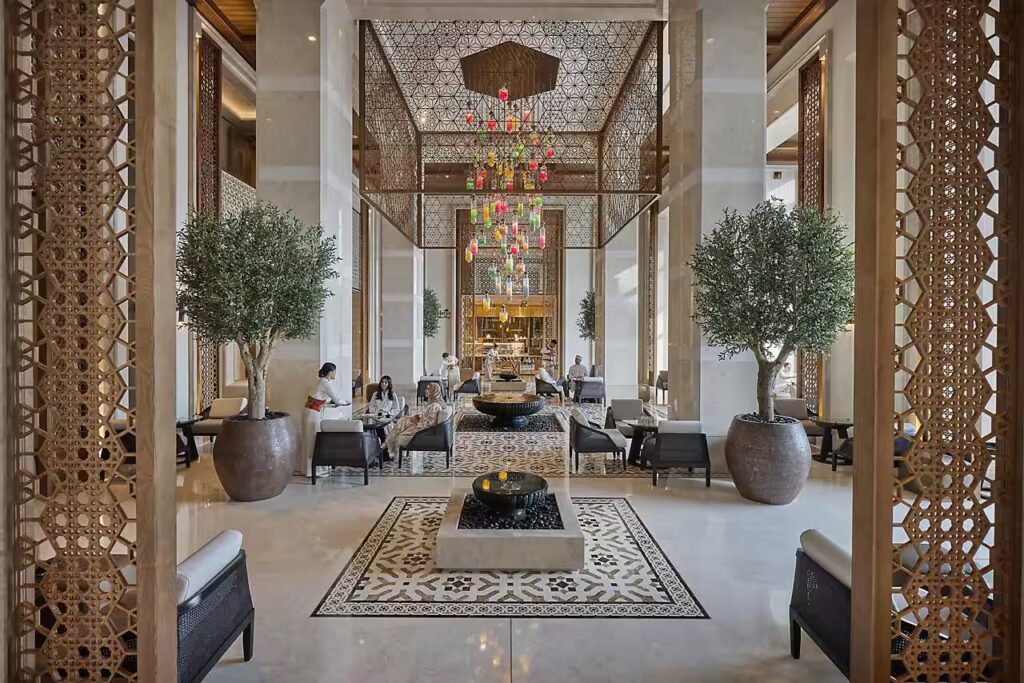
Skift Take
Muscat is the ying to Dubai’s yang. Oman’s roadmap doesn’t focus on glitzy mega-projects but rather sustainable growth and cultural preservation.
In the hypergrowth world of the modern Gulf, Oman stands in stark contrast to its neighbors. Dubai in the UAE and Riyadh in Saudi buzz with frenetic energy, driven by an influx of expats and new graduates from Africa and India. But Oman moves to a different rhythm — one of calm deliberation and cultural preservation.
The difference is clear the moment you land at Muscat’s new airport. A 45-minute flight from Dubai’s bustle, it is the embodiment of Oman’s approach: modern, efficient, yet subdued. This juxtaposition is no accident.
Like many of its neighbors in the Gulf, Oman has laid out a roadmap for growth. But it doesn’t focus on glitzy mega-projects. Oman’s Vision 2040 emphasizes human-centric development, sustainable growth, cultural preservation, and balanced economic diversification.
Absent are any insane CAD renders, IG influencers, PR blitzes or glittery junkets. It is a thoughtful holistic approach: notably focused on tourism, mining, logistics, and manufacturing alongside developing free trade zones and enhancing infrastructure.
Oman’s Approach in Action
Oman Air, set to join the OneWorld alliance in 2025, punches above its weight in service quality, offering a similar (though not the exact) experience of the big guns, Qatar Airways and Emirates.
Oman is also growing a pipeline of luxury hotel brands. Jumeirah, St. Regis, Four Seasons, and Alila are all establishing footholds in the country.
The crown jewel of this development is the new Mandarin Oriental in Muscat. It blends the brand’s luxury with local elements of architecture (tilework, lamps, wooden features), showcasing how international brands can respectfully integrate into Oman’s cultural fabric. It serves as a blueprint for how luxury brands should approach expansion: not as colonizers planting flags, but as thoughtful collaborators enhancing the local experience.
Oman has always been a seafaring country, characterized by trade and openness. Yet it has maintained a deep reverence for tradition. Progress has been measured. The ethos, shaped by the late Sultan Qaboos, permeates every aspect of development. The late Sultan was intentional and deliberate with almost everything in the culture, from social welfare, to diplomacy and economic development.
Oman’s Calm Alternative
Oman does face significant challenges. The country’s population is projected to increase from 5.2 million to 7.7 million by 2040, creating a pressing need for housing and infrastructure in Muscat, where many are moving. The country’s leadership faces domestic pressure stemming from diminishing social entitlements for its citizens.
In response, projects like the planned Sultan Haitham City aim to address the looming housing crisis while maintaining Oman’s commitment to planning. And there is no mega-tower in sight, with most of the development no higher than six stories.
The country moves at its own pace, which is something I’ve always enjoyed since my first visit back in 2015. I camped in the vast deserts of the Empty Quarter, visited the mountains, and traveled all throughout the country. I commented in a column in 2018 that the country was preparing to be the “perfect introduction to the Middle East” for U.S. and Western tourists.
I also think some expats may find in Oman a calmer alternative to the frenetic pace of other Gulf cities. The country is betting that global businesses will discover an opportunity to grow in a stable, trade- and tax-friendly environment.
Muscat is the ying to Dubai’s yang. And while both present compelling paths for growth, Oman serves as a reminder that progress need not come at the cost of cultural identity, and that sometimes, moving at one’s own pace can lead to more durable outcomes.
